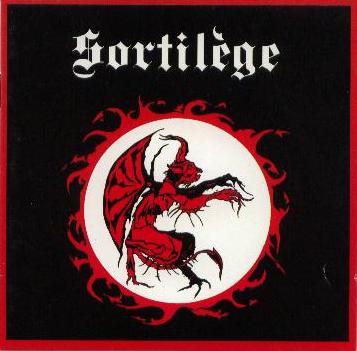Magical - 100%
Written based on this version: 1997, CD, Axe Killer Records (Reissue, Limited edition)
The French have some mighty fine musicians nowadays, but they have no Christian "Zouille" Augustin, they have no Stéphane Dumont. Sortilège is sometimes venerated to ethereal heights by those who remember them, and this EP once shook the scene in Europe. To know why, you only have to listen. No one knew who they were; most couldn't understand what they were saying. They disappeared almost as soon as they arrived, and no one knew where the giants went after that. What we do know is that they were truly awe-inspiring. They were not a great cult band, they were a great band, a true heavy metal colossus. They stood among the other giants of the French heavy metal scene – Blaspheme, High Power, ADX – with an almost godlike aura. They did no wrong throughout their first EP – hell, throughout their entire discography!
It's not merely hard 'n' heavy metal either: it captures something truly magical. They utilize the forgotten beauties of the French language, its inherent majesty and romanticism, to let their wild spirits speak. Something about their songs set them apart from the vulgar and simplistic concerns of many heavy metal bands. They are not men of practical affairs but dreamers and prophets. The songs seem to capture a true spiritual agony, true inner conflict – something few metal artists do so convincingly. Their music has the mark of elevation, of imagination. Many talented musicians get nowhere because they are held back by the absence of imagination; but these guys seem to dream of the stars as they sing of their duty.
There seems to be more behind the riffs than mere notes – something is being said. They don't say it with wimpy nonsense, with melodramatic trash, with hokey ballads or ballroom cynicism; they mean it. They play it loud and fast, but they play it with elevation and heart. They could have been great playing mere metal, but instead they traveled farther, into regions of great beauty and power. The riffs are unmistakably first-rate: they have felicity, passion and vigor; but they develop too, throughout the songs. The structures are broad and imposing, like a stately castle or beautiful ruins. As musical architects they were classicists, not modernists; they stuck to the Gothic, not drawn to the modern and progressive.
The singer has a somewhat feminine voice, but he fully embraces it to earn himself a somewhat angelic presence. He gently floats above the instruments to deliver his message; he guides his fellow band members from above. And it is so poignant emotionally too: every scream, every yell, feels as if it is an amplified sigh straight from the heart. The drumming, meanwhile, is used to accentuate the textures throughout with original touches and flair. This is no steady, on the beat drumming performed next to a click-track, but interestingly utilized drumming that is very present throughout the entire record. The guitar solos are brief here, but every note captivates. The man was fingering as if his life depended on it. Are there more perfectly breathtaking solos to be found in the entire metal repertoire? The band members invoke the great dignity of the acoustic guitarists of yore without even unplugging.
I speak of them only through abstract concepts, because to reduce them to mere musical execution seems almost banal. You can't reduce the greatest poems of Goethe to mere metrical schematics, nor can you can dissect Sortilège's music to the bone to discover the source of greatness. There is no great musical trickery, no flashy, inventive musical device. What we can say, to continue the parallel with Goethe, is that Goethe said he wrote poems in certain meters only once he had gotten so comfortable with them he could compose with them spontaneously. So it seems to be for Sortilège too: they songs are intricate and well-designed, but they seem to come about effortlessly, spontaneously. The signs of labor and construction are hidden. Nothing about the songs seem mannered or designed - unlike many grander progressive rock projects, there is no feeling of trying too hard. They are easy on the ear and enter the heart almost stealthily.
If this band had been in the right place, they could have been an international phenomenon. Sortilège is spoken of with an almost worshiping reverence by some, and they deserve that praise. Many lament their fast disappearance, but it befits their status. They were the great Hebrew prophets in the desert, the innocents in the garden of the Hesperides, last vestiges of a past paradise, the final traces of the original metal explosion. The band was born and dying as if within the same breath, with no time for its power to falter or its light to fade.
You may have played every album Judas Priest made from front to back several times; you may have memorized every Iron Maiden tune; you may have an autographed Black Sabbath CD – but still, if you haven't heard Sortilège, if you have never heard these musicians soar to higher musical plains, if the band name is nothing to you but obscure French, you are missing out. This is one of the greatest release I've heard in the entirety of metal. It literally made me tremble in awe.

